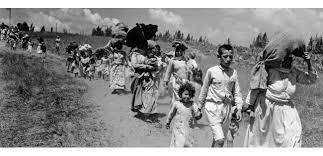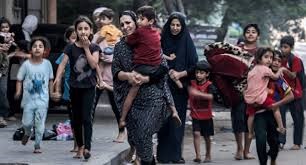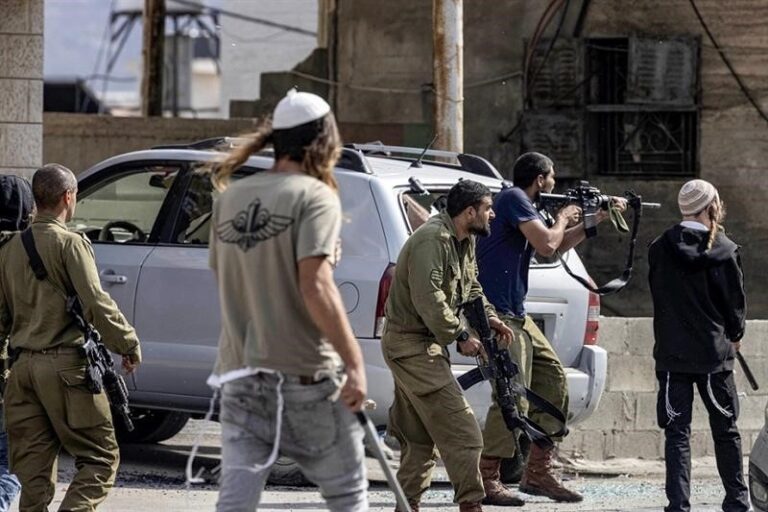The War That Has Yet to Rage Inside Israel
It’s probably 1997, and I am sitting with a friend in a café in Beirut, not too far from Palestine; Palestine as a yearning, a dream, an idea, because that was all there was of it for him and me.
The encounter taught me the wonders of boundless passion and commitment–and the utter folly of them if left to run unschooled and wild.
My friend, whom I shall not name and who is no longer with us, had quite the brain. His was an intellectualism as blunt as it was sharp and witty and nuanced. He was thoughtful, inquisitive, erudite; just beautiful all around. And he loved Palestine completely and helplessly.
For him, Palestine was the beginning and the end of all positions he took on everything. He would be calm and considered in any argument about the good and the bad in its tragic history, until you mentioned the PLO’s Yasser Arafat. He was his hero, much like superman is a child’s. It’s not that he didn’t recognize the shortcomings of the man, but that he couldn’t acknowledge the implications of them. He couldn’t connect the dots. At the very point when the argument would have to yield to its obvious conclusions, he would stop it in its tracks.
The conversation that afternoon was heated because all conversations about Palestine seethe, much like the cause itself. Arafat, post-Oslo, was constructing a security apparatus in the West Bank that could compete with any Arab regime’s. I insisted this bode very ill for the Palestinians; my friend started speaking in unfathomable tongues.
It became very apparent to me that passion this blind, is blind to everything, especially the meaning of facts. Not just any facts, but those that glare at you and refuse to budge or be obscured by convictions. Not just any convictions, but those that are so precious and tightly held, they’re almost impossible to shake.
For my friend to come to terms with the meaning of such facts would have meant that thirty years or more of passionate beliefs were for naught. And that was just too unbearable a task. As we parted, I told him that passion’s best chaperon is skepticism. With it, the freedom to journey through life’s lessons; without it, imprisonment.
In the aftermath of last Saturday’s Hamas assault on the south of Israel, the trail of bloodshed it left behind, and the genocide unleashed yet again on Gaza, I have spent my time with the words of others. And not just any words, but the words of those who ought to know better, because they actually do know better.

I landed on the piece of Israeli novelist David Grossman in The Financial Times and thought it rather extraordinary. Not extraordinary because it is a genuine cry of anguish, or because it is eloquent, or because it grapples with the sorrows that cast a million doubts. It is all that. But extraordinary because its passion for Israel, like my friend’s for Palestine, is unschooled and wild. These paragraphs gave me pause:
But make no mistake, and do not be confused: with all the fury at Netanyahu and his people and his policies, the horror of these past few days was not caused by Israel. It was effected by Hamas. The occupation is a crime, but to shoot hundreds of civilians — children and parents, elderly and sick in cold blood — that is a worse crime. Even in the hierarchy of evil, there is a “ranking”. There is a scale of severity that common sense and natural instincts can identify. And when you see the killing fields of the music festival site, when you see Hamas terrorists on motorcycles chasing young partiers, some of whom are still dancing without realising what’s going on . . .
I do not know whether Hamas operatives should be called ‘animals’, but they have undoubtedly lost their humanity.”
Who will we be when we rise from the ashes and re-enter our lives? When we viscerally feel the pain of author Haim Gouri’s words, written during the 1948 Arab-Israeli war, “How numerous are those no longer with us.”…
If I may hazard a guess: Israel after the war will be much more rightwing, militant, and racist…
what do those who brandished the absurd notion of a “binational state”say now?…
I hope, I pray, that there will be Palestinians on the West Bank who, despite their hatred of Israel — their occupier — will set themselves apart, whether through action or words, from what their compatriots have done. As an Israeli, I have no right to preach to them or tell them what to do. But as a human being, I have a right — and an obligation — to demand of them humane and moral conduct.
And there they are, the blind spots of every helplessly passionate man. By Grossman’s own measure alone, if we were to just list Israel’s massacres, mass expulsions, occupation, collective punishments, sieges and lockdowns since 1948, all done in cold blood, the Hamas “horror” he mentions has its horrific context


But Grossman chooses to capture the Palestinian-Israeli struggle in snapshots, when he, of all people, should know that it can only be fully understood as a chronicle.
The Israeli occupation, as he rightly says, is a crime, but this crime is not an abstract concept, intangible and indiscernible. It has systems that subjugate and kill and imprison and torture every day; it has structures and methods to rob the land and property and water of those it oppresses; it has troops deployed to execute such orders and courts that sanctify and protect such plans; and it has victims whose very humanity it cannot recognize, because how could it and still go on occupying.

Grossman is correct, slaughter is a negation of humanity. Of course it is. And so, without even a hint of irony, he has condemned his beloved Israel for shirking its humanity many times over long before Hamas was born.
He asks of the West Bank’s Palestinians to rise above 75 years of dispossession and 56 years of occupation and be humane and moral, even as scores of them were being killed by Israeli settlers and soldiers. He makes his appeal as a human being but owns up to his other identity as an occupier. I find this dichotomy fascinating and have to wonder: do these two know that for one of them to be the other cannot be?
And here’s the thing: the Palestinians have risen above it, time and again. To no avail. They rose above it even as early as 1948. The history is clear, the books and archives are there, the names are known. Israel rebuffed every approach and fought every type of non-violent resistance as its friends looked on. It did so, because it thought it could actually have it all. And it thought so not only because it had a dangerously false sense of immunity, but also because of the boundless passion of those like Grossman who believe they can co-exist within themselves as both occupiers and human beings.
There is little hope for a binational state, I agree. There is even less hope for a two—state solution. The reasons are many. But perhaps the single most important one is the inability of Grossman, who no doubt speaks for so many of his “liberal” and “progressive” compatriots, to take the argument all the way to the end and release it to its obvious conclusions: we cannot look forward to a kind future in that God forsaken corner of the earth called Israel-Palestine if Palestinians are not living free in it.
****
On Another Note
On Another Note this week stays on topic. When was the last time you genuinely gave Gaza a thought? A serious thought. Adam Tooze does in his Chartbook. He asks these questions and then proceeds to answer them:
What kind of place is Gaza, that it can be subject to such instructions? How can a territory that is home to more than 2 million people be disposed of in this way? Why are there no powerful interests that react against the ruthless logic of a military campaign that simply designates a city for destruction? How did Gaza and its people become so isolated, so absolutely objectified?
